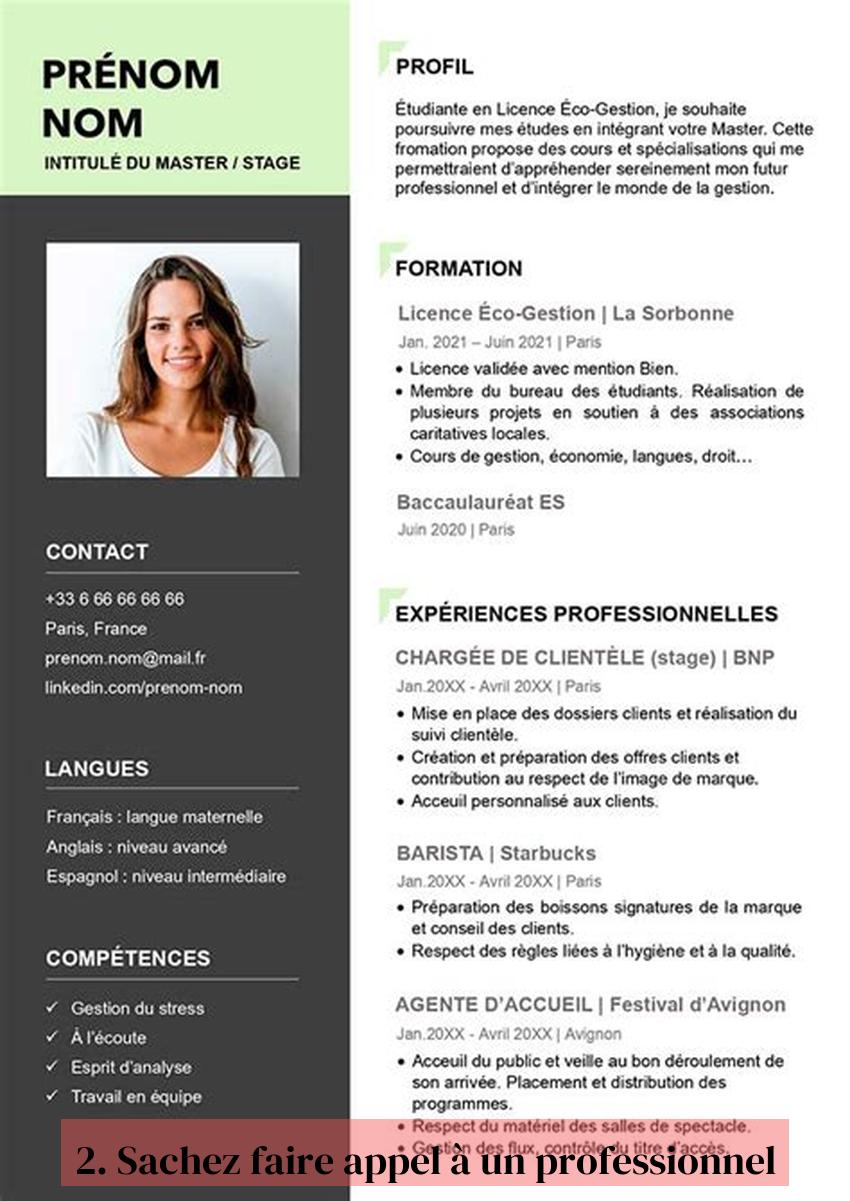How to be accepted for the master's degree? Landing a place on a master's program can be a big challenge, but don't worry, we've got the advice you need to succeed with flying colors. Whether you are an ambitious student or a career change professional, follow these foolproof steps to put the odds in your favor. From motivation to general average, discover the secrets to impress the selection juries and get your ticket to the master's degree of your dreams.
Table of contents
Key points
- Being motivated and thinking about your professional project is essential to be accepted into a master's degree.
- Calling on a professional can help optimize your chances of admission.
- Clarity on the reasons for choosing the training is an important point in the application file.
- Taking the time to respond to the application form can make the difference.
- Taking care of your CV is a crucial element when applying for a master's degree.
- A general average of 12 to 14 on the license is generally required to be accepted for a master's degree, with a bonus for the license 3 transcript.
How to be accepted for the master's degree?

1. Be motivated and think about your professional project
Motivation is essential to succeed in a master's degree. You must be able to demonstrate your interest in your chosen field of study and explain how this master's degree will help you achieve your professional goals. Take the time to think about your goals and how the master's degree fits into your career path.
2. Know how to call on a professional

If you have difficulty formulating your professional project or writing your application file, do not hesitate to call on a professional. A guidance counselor or coach can help you clarify your goals and showcase your skills.
3. Be clear about the reasons that lead you to choose this (these) training(s)
In your application file, you must clearly explain why you chose this master's degree and what motivates you to follow this training. Be specific and avoid general answers. Explain how this master corresponds to your professional and personal objectives.
Other articles: When does Master’s registration begin? Calendar, Tips and Complete Procedure
4. Take the time to respond to the file
The application file is an essential element of the master's admission process. Take the time to fill it out properly and take care of your presentation. Follow the instructions given by the establishment carefully and do not hesitate to ask for help if you have any questions.
Popular news > Overwatch 2: Discover Rank Distribution and How to Improve Your Ranking
5. Take care of your CV
Your CV is another important element of your application file. It should be well presented and highlight your skills and experiences. Don't forget to mention your diplomas, your internships, your professional experiences and your extra-curricular activities.
Popular right now — Kenneth Mitchell Death: Tributes to Star Trek and Captain Marvel actor
6. Have a general average of 12 to 14 on the license
Most master's degrees require a general average of 12 to 14 on the license. However, some courses may have higher requirements. Check with the establishment you are interested in to find out its admission criteria.
Popular right now — The New Renault 5 Electric: Release Date, Neo-Retro Design and Breathtaking Performance
7. Have a good license record 3
The license 3 file is particularly important for admissions to a master's degree. It must show that you have taken high-level courses and obtained good results. The grades obtained in license 3 are often taken into account in the calculation of the general average.
8. Follow additional tips
- Be active in your studies. Participate in classes, ask questions and get involved in group projects.
- Do internships. Internships are a great way to gain work experience and show employers that you are motivated and capable of working in a professional environment.
- Get involved in extra-curricular activities. Extracurricular activities show that you are an active and engaged person. They can also help you develop valuable skills for your future career.
- Be patient. The master's admission process can be long and difficult. Don't be discouraged if you are not accepted into the first master's degree you apply to. Keep applying for other masters and don't lose hope.
What average is generally required to be accepted into a master's program?
A general average of 12 to 14 on the license is generally required to be accepted for a master's degree, with a bonus for the license 3 transcript.
How to provisionally accept a master's proposal?
You can only provisionally accept one proposal. You must then indicate on the platform the wishes still pending that you wish to keep.
What grade is needed to validate a master's degree?
The EU is validated when the student obtains a general average equal to or greater than 10/20.
What are the crucial elements for applying for a master's degree?
It is essential to be motivated, to think about your professional project, to call on a professional, to be clear about the reasons for choosing the training, to take the time to respond to the application form and to polish your CV.
How to maximize your chances of getting into a master's degree?
To maximize your chances of entering a master's degree, it is recommended to be in an already selective course, to have a solid record in the relevant subjects, and to demonstrate your involvement and motivation.



